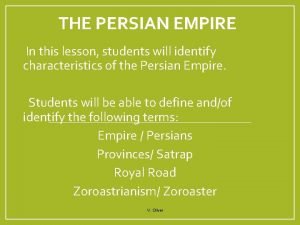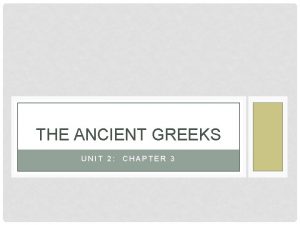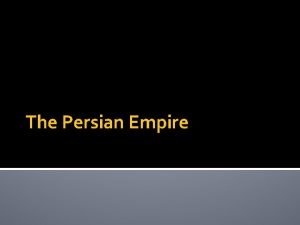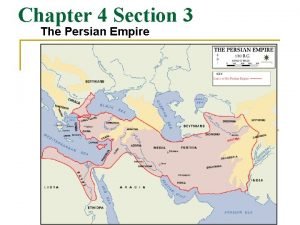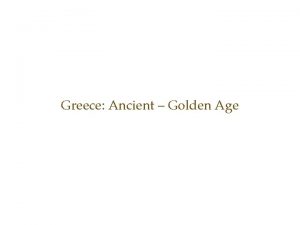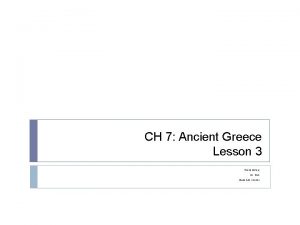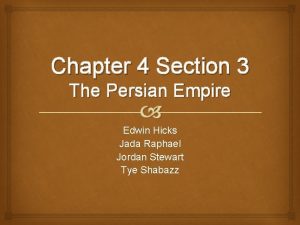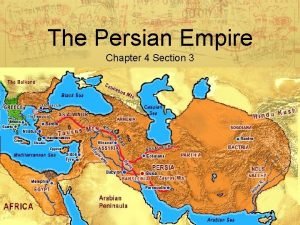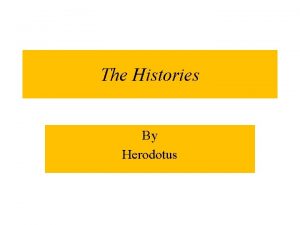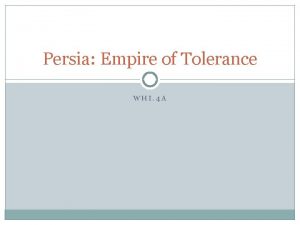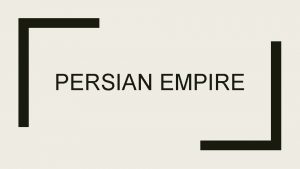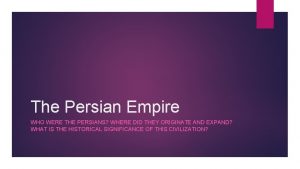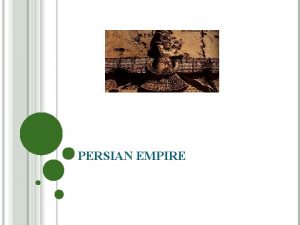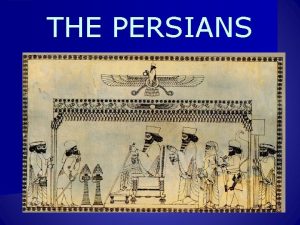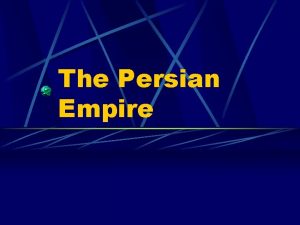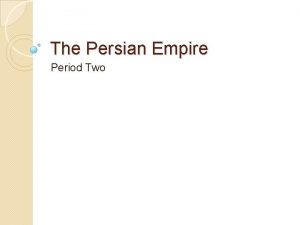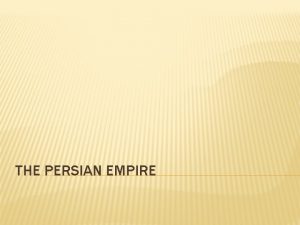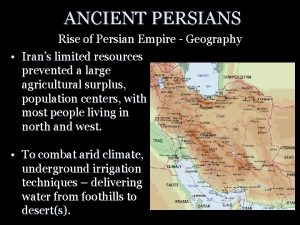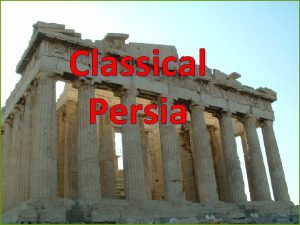The Persian Empire WHO WERE THE PERSIANS WHERE














- Slides: 14

The Persian Empire WHO WERE THE PERSIANS? WHERE DID THEY ORIGINATE AND EXPAND? WHAT IS THE HISTORICAL SIGNIFICANCE OF THIS CIVILIZATION?

Map of Persian Empire:

Map of Persian Empire: Persian Empire Greece Mesopotamia Egypt Nile River

Geography of the Persian Empire The Persian Empire was built upon Central Asian and Mesopotamian Civilizations The heart of this Empire was located in what is modern-day Iran

Origins of the Persian Empire The Persian Empire truly begins in 552 BCE—when Cyrus the Great and his armies conquer the Medes After conquering the Medes Cyrus goes on to conquer all of Mesopotamia Cyrus’ son Cambyses II went on to conquer much of Egypt

Origins of the Persian Empire After Cambyses II death there was struggle for power and Darius assumed leadership Darius established the first capital city at Susa Darius established the Royal Road—which was a great highway that went from the capital to Sardis

The Royal Road was constructed primarily for military reasons The road allowed Persian couriers (messengers) to deliver messages throughout this large empire at a remarkably fast rate

Map of Persian Empire: Persian Empire Greece Royal Road Mesopotamia Egypt Nile River

Power of the Persian Empire Under the leadership of Cyrus and Darius the Persians went on to establish the largest empire in ancient history prior to Alexander the Great went on to briefly conquer the Persians, which started the slow but gradual fall of the Empire The Persians would eventually be completely destroyed by the Muslim conquest and Mongolians around 700 CE (AD)

Persian Contributions: Tolerance towards those they conquered The Persians are well remembered for the tolerance they practiced towards conquered people Unlike many other ancient empires, the Persians allowed the people they conquered to maintain their laws, customs, religions, and political structure

Persian Contributions: Tolerance towards the people they conquered What the Persians required in return were that the conquered people paid taxes and contributed to Persian military efforts Tolerance ensured that the conquered people would be better servants to the empire http: //www. youtube. com/watch? v=514 IEcgz 1 Q 8

Persian Contributions: Imperial Bureaucracy The Persians developed the world’s first imperial bureaucracy A large group of non-elected individuals responsible for running and administering governmental policies

Persian Religion: Zoroastrianism (today known as Parsiism) is a dualistic religion Belief in two gods—A god that is good (Ahura Mazda) and a god that is evil (Aura Mainyu) The religion developed around 500 BC by the Persian prophet Zoroaster The religion beliefs that the world is divided between good and evil and it is up to humanity to determine who they support and who will reign supreme

Beliefs of Zoroastrianism believes in a judgement day, angels and demons, a messiah, baptism, and bodily resurrection Many scholars believe this religion had a strong influence on Judaism, Christianity, and Islam
 Who were the persians
Who were the persians Who were the persians
Who were the persians Why did the delian league break apart
Why did the delian league break apart Persian empire primary sources
Persian empire primary sources Rise of the persian empire
Rise of the persian empire Byzantine empire persian chart
Byzantine empire persian chart Persian empire golden age
Persian empire golden age How did persian rulers unite their vast empire?
How did persian rulers unite their vast empire? Persian empire trade routes
Persian empire trade routes The persian empire chapter 4 section 3
The persian empire chapter 4 section 3 Chapter 4 section 3 the persian empire
Chapter 4 section 3 the persian empire What do the words that appeared on cyrus's tomb
What do the words that appeared on cyrus's tomb How did the persians punish the ionians for rebelling?
How did the persians punish the ionians for rebelling? How did the royal road benefit the persians?
How did the royal road benefit the persians? Persian wars cause
Persian wars cause
